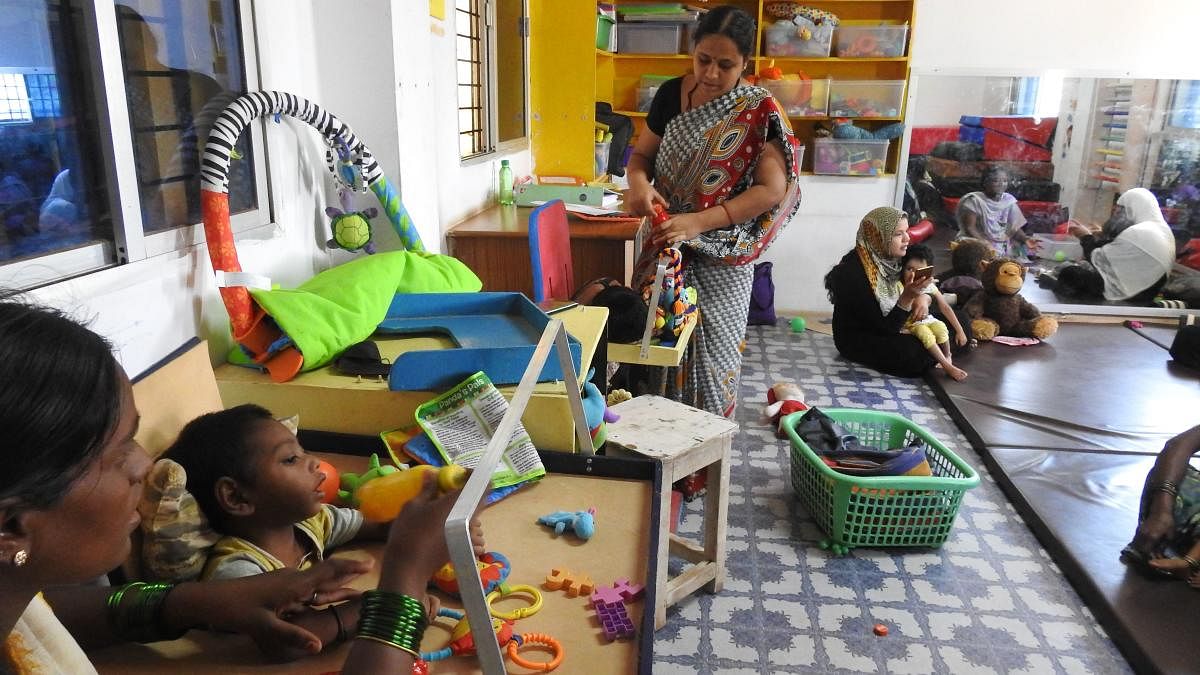
Malnutrition and disability are often interrelated and several global studies since the 1990s have only attested to it. Sure enough, 90 out of the 110 local children in Koppal enrolled at an early intervention centre for the differently-abled, Samarthya, are malnourished.
It’s no accident: Over 70 of the mothers of these Koppal children themselves are undernourished.
Gynaecologists and paediatricians say that malnutrition in mothers could lead to several health complications, including premature delivery and low birth weight.
While the lack of Vitamin A is the major cause of preventable blindness among children, anaemia can lead to poor concentration and cognition, affecting learning.
Lack of nutrition in pregnant women can lead to short stature which can cause various complications such as delayed delivery and obstructed labour.
“This could prove costly for babies as it causes various disabilities including cerebral palsy,” said Dr Sylvia Karpagam, a public health doctor.
Karpagam also points to an ambiguous provision in the Persons with Disabilities Act as it does not have reference to any nutritional intervention to prevent disabilities, but at the same time calls for the need to provide supplementary nutrition as a cure. Alongside causing permanent disabilities, malnutrition, according to experts, can also affect the functioning of physiological organs in kids.
“Malnutrition is a condition wherein every cell is starving and eventually our bodies start getting sluggish due to anaemia, poor muscle mass, decreased immunity to name a few. Iodine deficiency during pregnancy is also a major cause of preventable mental retardation among children,” Dr Veena Shatrugna, former deputy director, National Institute of Nutrition, Hyderabad, said.
A Unicef study states that post-natally, a child lacking in macro-nutrients or with sub-optimal nutrition will be more susceptible to infections — such as cerebral malaria, or meningitis — both of which have a high risk of leaving the affected child with permanent neurological damage and disability. Health practitioners and social workers say that even the various nutrition schemes of the government have failed to provide the required nutrition to children due to the lack of will and the politics over food.
This apart, kids with developmental delay are also at the risk of being malnourished if not given proper attention, according to experts. V S Basavaraju, Chief Commissioner for Persons with Disabilities, Karnataka, said that there a few secondary preventive programmes such as one for severe acute malnutrition in children and the Rashtriya Bal Swasthya Karyakram.
“But what is needed is a comprehensive study and authentic data that will establish and help design programmes addressing both the issues effectively,” he said.
Unfortunately, the state, barring a few pilot studies that underline malnutrition as a major cause for various disabilities, does not have any comprehensive research on the subject till date.